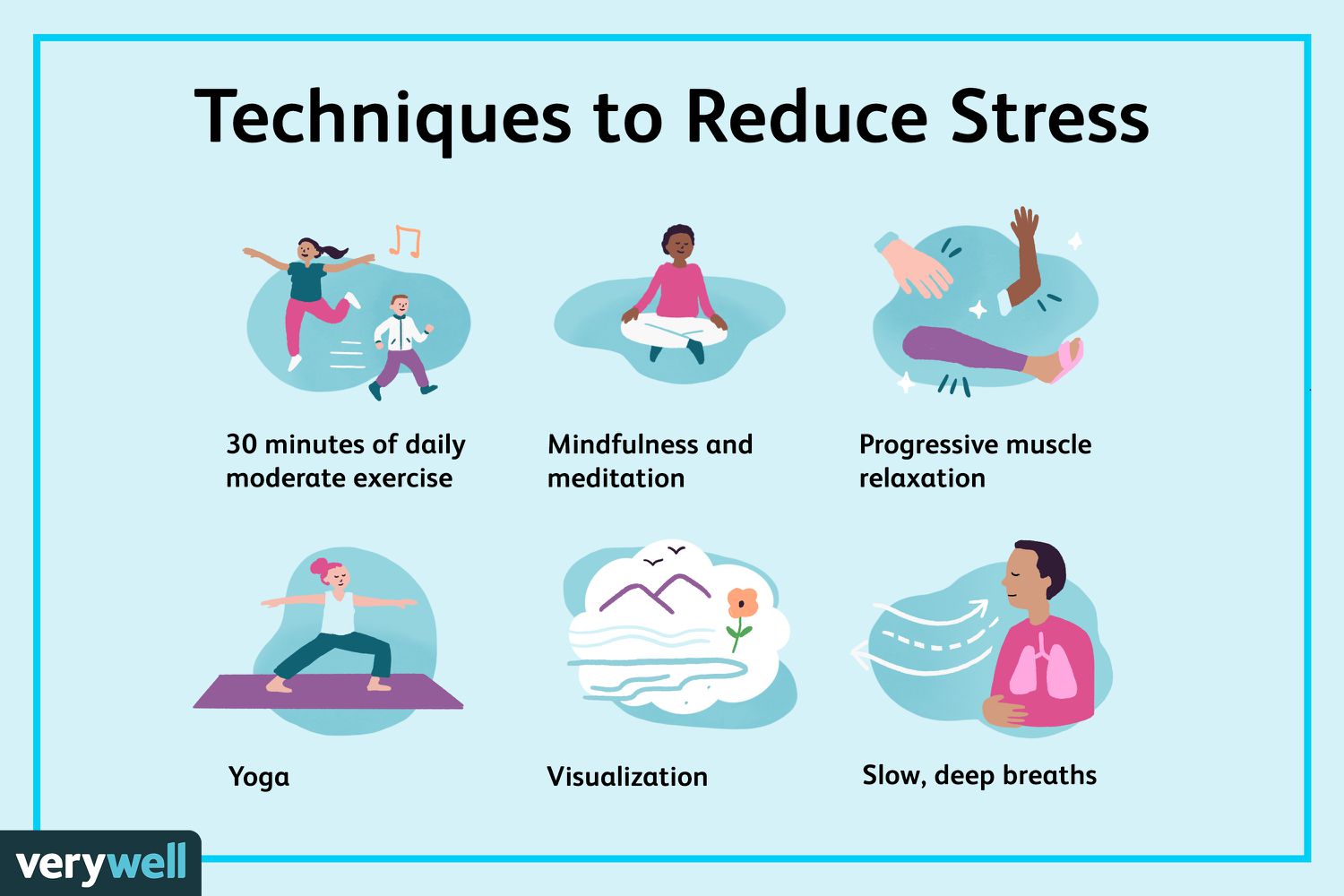
Discover simple yet powerful mindfulness practices that can help calm your mind and reduce stress in just minutes a day.
Read More →
Learn about the science behind exercise and stress relief, plus practical tips for incorporating movement into your routine.
Read More →
Explore how sleep and stress influence each other and get evidence-based tips for improving both.
Read More →
Learn which foods support your body's stress response and how to build stress-resilience through diet.
Read More →
Discover practical strategies for managing your time and priorities to reduce overwhelm and stress.
Read More →
Learn several evidence-based breathing techniques that can help you regain calm in stressful moments.
Read More →Respond to each question based on how you've felt in the last month. There are no right or wrong answers.
The assessment includes 10 questions and takes about 3-5 minutes to complete.
After submitting, you'll receive a score between 0-40 indicating your perceived stress level.
Based on your score, you'll get personalized resources to help manage your stress.
The Perceived Stress Scale (PSS) is a psychological instrument developed in 1983 to measure the degree to which situations in one's life are appraised as stressful. It assesses how unpredictable, uncontrollable, and overloaded respondents find their lives. The PSS has become one of the most widely used measures of stress perception in research and clinical settings.
The PSS-10 version we use has demonstrated good reliability and validity across numerous studies. However, like all self-report measures, it has limitations. Your score reflects your perception of stress at the time of taking the assessment, which can fluctuate. For the most accurate results, answer honestly based on how you've generally felt over the past month.
No, this is not a diagnostic tool. The PSS is designed for self-assessment and research purposes. It measures perceived stress levels but does not diagnose any medical or psychological conditions. If you're concerned about your stress levels or their impact on your health, please consult a qualified healthcare professional.
You can take the assessment as often as you like, but we recommend waiting at least a month between assessments to track meaningful changes. Some people find it helpful to take it monthly to monitor their stress levels over time, especially when implementing new stress management techniques.
The PSS includes both positively and negatively worded items to reduce response bias. Some questions assess coping ability rather than stress directly. This balanced approach helps provide a more accurate overall assessment of perceived stress.
No, we do not store your individual responses or scores. The assessment is completely anonymous, and your results are only displayed to you in the moment. We have no way to link your responses to your identity.
The PSS-14 includes 14 questions (7 positive and 7 negative), while the PSS-10 uses 10 questions (4 positive and 6 negative). Both versions are valid, but research suggests the PSS-10 maintains good reliability while being more efficient. We use the PSS-10 for its balance of accuracy and user-friendliness.
Yes, acute (short-term) stress can be beneficial in certain situations, helping to improve focus, motivation, and performance (often called the "fight or flight" response). However, chronic (long-term) stress that persists without relief can negatively impact physical and mental health. The PSS primarily measures perceptions of chronic stress.
The one-month timeframe helps assess your general stress levels rather than temporary fluctuations. It provides a more stable measure of how you typically perceive stress in your life. This timeframe is standard in the PSS and many other psychological assessments.
If your score falls in the high range (27-40), consider implementing the stress management strategies recommended with your results. If stress is significantly impacting your daily life, relationships, or health, we recommend consulting with a mental health professional who can provide personalized support and guidance.
Start with understanding your current stress levels and get personalized recommendations to help you build resilience.
Take the Assessment Now